Who can see your post?
Your post will show up in News Feed, on your profile and in search results.20,990 Global FURLONG Family Members
| Days | Hours | Minutes | Seconds |
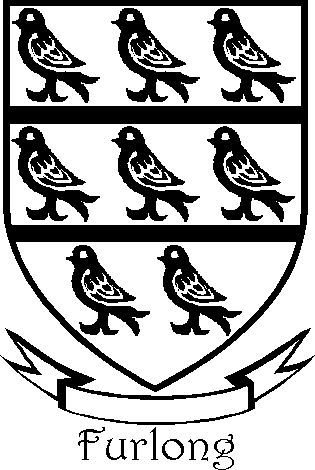
Sunday 9th November
2pm (New York), 7pm (Ire)
| Days | Hours | Minutes | Seconds |

Sunday 9th November
2pm (New York), 7pm (Ire)
Our in-person family gatherings
Our TEDx talk about family gatherings
FURLONG Family History
Recorded in the spellings of Forlong, Forlonge, Furlong and Furlonge, this is an English medieval surname. It derives from the pre 7th century Olde English 'furlange' meaning 'a long furrow', and this in turn came to be associated by useage with a specific distance of 220 yards or one eighth of a mile. However as a 'furlong' is usually an abstract measurement, it seems more likely that the surname is derived from a specific place or places, and this is born out by such recordings as John de Forhlang of Suffolk in the Fees Rolls of the year 1250, and Richard de Furlang in the Assize Rolls of Lancashire in 1260.
Furlong Family from Wexford
SINCE the 1169-71 period, when Norman, Flemish and Welsh mercenaries first came to Ireland at the behest of Dermot Mac
Murrough, the name Furlong has been prominent in Co. Wexford, and despite political and religious upheaval, confiscations and transplantings the bulk of those bearing the Furlong name suill reside in Wexford.
A study of this family made by W. H. Jeffrey states that the Furlongs are believed to have been established in Devonshire before the Norman Conquest of England.2 Jeffrey says they took their name from the village of Furlong so they are one of the very few families in the Norman, Flemish and Welsh landings of 1169-71 who were of old English origin.
He goes on to tell us that at the time of the Conquest (1066) John Furlong had a son called Roberi but unfortunately there was no information about this Robert and whether he was the Furlong who accompanied Strongbow to Ireland it is impossible to say, but it is definitely recorded that a Furlong arrived in Ireland with Strongbow, or shortly afterwards, and established a family in Co. Wexford at the Pole or manor of Pole, afterwards known as Polehore where a castle was built.
After the year 1334 the Furlongs exchanged properties with the Hores of Horetown which remained the chief seat of the family until the Cromwellian confiscations. In 1350 Philip Furlong founded a friary at Horetown for the Carmelite friars.
In the course of time the Furlongs became a very powerful and influential family. They engaged in many rebellions and fights with government forces, and in an old doggerel they are alluded to as "False Furlongs", for having so often sided with the Irish in their attacks on their fellow Norman families.
As early as 1343, it is recorded that eleven Furlongs took part in a military expedition against the O'Briens of Thomond. Twelve Furlongs of different places in Co. Wexford, ranking from gentlemen to kern, are amongst those to whom pardons were granted in 1559, while in 1572 Matthew Furlong was indicted for his 'open rebellion' in Co. Wexford No doubt he was one of those Furlongs officially described about the same date as 'malefactors matched with the Cavanaghs'. According to tradition the Furlongs were granted the manor and
Carrigmannon by Henry II in 1172 when one of his followers named Furlong saved the king's life by killing a savage boar which was attacking him in the forest of Glynn. Henry knighted Furlong there and then and bestowed on him a large tract of land in the neighbourhood. This tradition is commemorated in the family's coat of arms which shows a boar issuant from an oakwood. The Furlongs held most of the land between Carrigmannon and Horetown. On May 6, 1638, James Furlong sold Carrigmannon for £2,500 to his cousin, Robert Devereux of Ballymagir.
In 1598 Furlong of Horetown is described as one of the gentlemen of the Barony of Shelmalier. The village of Foulksmills took its name from Sir Fulke Furlong, Seneschal of the Liberties of Wexford in 1413
After the Furlongs left Horetown during the Cromwellian confiscations, they were probably transplanted to Connacht or elsewhere but James Furlong moved to a farm at Holmestown near Glynn. In 1 John Furlong left Holmestown to marry Mary Martin of Templescob From that time the senior branch of the Furlong family resided in Templescoby. In the '98 Rebellion Matthew Furlong of Templescoby was aide-de-camp to Bagenal Harvey, commander-in-chief of the Insurgents and was shot while carrying a flag of truce.
The fine bronze statue opposite the Tholsel in New Ross, which commemorates the battle of Ross in 1798, is that of Matthew Furlong, bearing the flag of truce. His body was brought home and is buried in the family burial ground in Killurin, not far from Polehore. Rev. Tobias Furlong, P.P., Tagoat, who died in 1975, was of the Templescoby family and a descendant of this Matthew Furlong.
The small castle or fortalice of Aughnaghan, near Harperstown, just off the main Wexford-Duncannon road, probably was a possession of the Hores that passed to the Furlongs together with Horetown at the time of the exchange with Polehore. Davidstown Castle, in the parish of Glynn, became the 15th century residence of a branch of the Furlong family who moved here from the Barony of Forth. The last of this branch was, with his brother, a captain in the Confederate Army and was taken prisoner in the battle against the Parliament. He was consequently dispossessed by Cromwell. The site of this castle at Davidstown has now been located
Wilton Castle and estate came to the Furlongs by the marriage of Ismay Dene, the heiress and only child of the last male of the family Dene, to Philip Furlong of Horetown who succeeded to the prope upon the death of the last Dene in 1354. The estate eventually passeu, the family of Alcock who built the large mansion which was destroyed in 1923.
A famous Wexford Cistercian monk was Father William (Candidus) Furlong who was born in 1576. He had a reputation as a 'miracle worker' and was even sent for by King James of England to cure a noble lady who was closely related to the King. Regarded as a saint, he died in 1616 and is buried in St. Patrick's Churchyard in Wexford.
Coming to the nineteenth century we find the name Furlong distinguished in the person of Bishop James Furlong of Ferns (1857-75). Born in Mayglass, this illustrious Bishop was educated at the Latin School of James Fortune, Ballyfane Cross, Carne. He continued his studies at the Diocesan Seminary in Michael St., Wexford, which preceded St. Peter's College. He went to Maynooth College in 1819 where he distinguished himself as Dean, Professor of Rhetoric and of Moral and Dogmatic Theology. He was recalled in 1857 to be consecrated Bishop of Ferns and took up residence in St. Peter's College.
His episcopacy was remarkable for outstanding achievement. He brought the Loreto, St. John of God and Perpetual Adoration nuns to Wexford and the Sisters of St. Louis to Ramsgrange. He founded the House of Missions in Enniscorthy and completed the Cathedral there. He instituted the complete observance of church holy-days, started a successful temperance campaign in which the sale of all intoxicants on Sundays and holy-days was prohibited, and introduced for the first time in Ireland the Confirmation pledge. During his reign the twin churches in Wexford were completed.
A number of other Furlongs have been prominent in the Church in the Diocese of Ferns. Archdeacon John L. Furlong was parish priest of Gorey and Vicar General when he died in January, 1907. He had previously been P.P. of Ballygarrett, Administrator in Enniscorthy, curate in Tacumshane and a professor in St. Peter's College till 1865. He was born at Ballygara, Carnew, in the parish of Our Lady's Island.
His brother, Canon P. M. Furlong, was Parish Priest of Taghmon from 1896 until his death in August 1914, having previously been P.P. of Piercestown. He was noted as a fearless champion of the social and political rights of the people. He accomplished many improvements in Taghmon, including the building of a substantial hall as a reading room and place of recreation for the parishioners.
Archdeacon John Furlong was P.P. of Cloughbawn from 1869 to 1881 and P.P. of Cushinstown from 1881 till his death in 1910. He was responsible for the building of the Church in Rathgarogue. Archdeacon James Furlong, a native of Rathnure district, was P.P. of Kilmore for many years until his death in 1951.
The Furlong tradition of church service is being continued by Rev. Patrick Furlong, curate at The Ballagh, parish of Oulart. He is the son of late John J. Furlong, Littlegraigue, Duncormick, who who was a long-time member of Wexford County Council and other public bodies.
Rev. J. Furlony a native of Ring, Carne, was appointed Archdeacon of Sydney in 1923. A former Church of Ireland Rector of Ballycanew and Leskinfere was the Rev. Precentor W. B. Furlong.
Nicholas Furlong, Drinagh Lodge, Wexford, is a well-known author, agricultural journalist and historian. He was elected a life Fellow of the Royal Society of Antiquarians of Ireland in 1977. In 1965 his historical documentary play, Insurrection '98, was produced by Tomás MacAnna of the Abbey Theatre, for the Wexford Opera Festival and was an outstanding success. His greatest work is a first historical biography of 'Dermot MacMurrough, King of Leinster and the Foreigners'.
Thomas Furlong, who has been described as the greatest of Wexford poets, was born near Scarawalsh, in 1794.2 His first publication was 'The Misanthrope' in 1819, a didactic poem. In 1822 he produced and edited The New Irish Magazine which was printed in Dublin. In the Morning Register', a popular Dublin newspaper, he was responsible for a series of parodies which were copied into the magazines of two continents. Probably his best work is found in the translation of O'Carolan's 'Remains'. His claim to a place amongst the greatest of the Irish poets may be safely rested on those magnificent pieces. Thomas
Furlong died at the age of thirty-three and is buried in Drumcondra where a monument was erected over his grave by his friends.
Jack Furlong, whose family lived at Old Pound, Wexford, was Governor of St. Patrick's Borstal in Clonmel, and later of Portlaoise and Mountjoy prisons. Joseph Furlong was a member of Wexford Borough Council from 1974 to 1979 and was secretary of the Wexford Trades Council. Seamus Furlong, New Ross, is well known in the amateur theatre and is an accomplished sculptor; George Furlong. School St., Wexford, has been a leading figure in Comhaltas Ceoltóirí Éireann, the organisation that promotes traditional Irish music: Willie Furlong, Ballyharty, Kilmore, was one of Ireland's foremost athletes in the 19305 and 1940s.
Philip Furlong of Rathaspeck joined the Western Australian Police Force in 1861. When he resigned from the force in 1881, he joined the Department of Education at Adelaide and was Inspector of Schools until his death in 1902. He was grandson of a rebel who died at Carrigbyrne u wounds sustained at the siege of Ross in 1798.
Select Audience
-
Public
Anyone on or off Wales101 -
Friends
Your friends on Wales101 -
Specific
Only show to some friends -
Only me
Only you can see your post
Tag People
-
Kane William
-
John Micky
-
John william
-
John Smith
-
John
Create Life Event

Barbara J Furlong

Charles Robert Furlong
??Charles Wellington Furlong was an exporer, writer and artist.
I know Atherton and Charles were from the NE USA, but I'm not sure where our European roots are. I have a coat of arms that Charles painted that does not look like any other Furlong coat of arms that I have run across.??

Furlong

Lawrence E Daly
Areas of Origin for FURLONG
Invite more FURLONG family members!
Write an email address and click 'Invite' to share this page with more members of the FURLONG tribe.
Log in or Register to invite others
Family Coat of Arms Generator
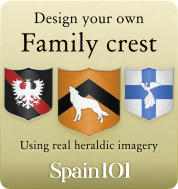
Why not see what your family crest could look like based on your own family characteristics?
Create CrestJoin the Irish Learning Rooms
Show off the FURLONG Family Crest…
Wear your crest with pride...plenty of products to choose from


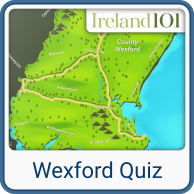
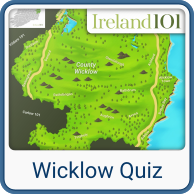
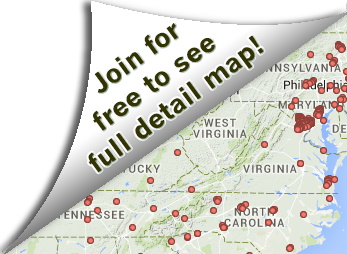
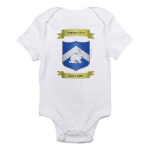
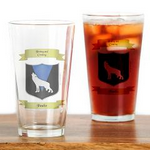
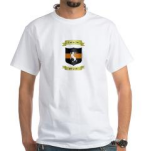
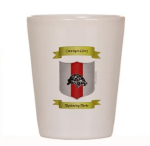
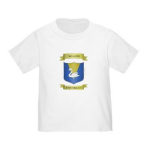
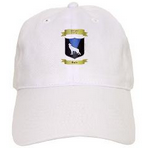
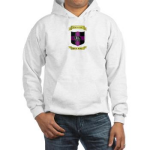
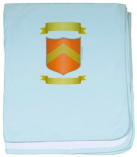
_(2).jpg)
My father was Martin Irvin Furlong (B: Jul 2, 1918 in Havre, Montana, USA), son of Lawrence William Furlong (B: Aug 13, 1884 in Pierre, South Dakota, USA), son Martin Stephen? Furlong (B: 26 Jan 1845 in County Carlow, Ireland) "possible" son of Phillip Patrick Furlong (B: ABT 1804 in Turra, Glynn, Carlow, Ireland.)
I will be traveling with my new-ish husband to Ireland in a couple of weeks ?(March 20th - March 26th) and would love to meet with any kinfolk for a coffee/tea/pint and chat a bit about my Irish roots!